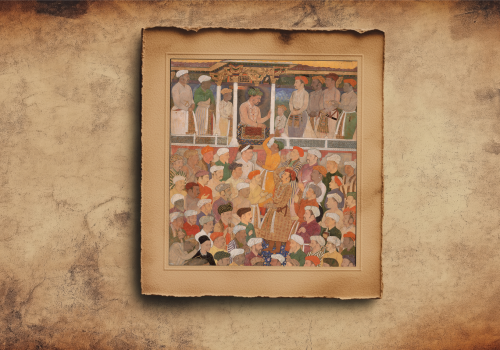As a protocol officer, he received in 1831 Alexander Burnes at Multan. In 1839, he accompanied the army of the Indus under Sir John Keane. Later, in 1840, he took charge of the Fauji Khas and in 1843, he became its permanent commander. At the end of the Anglo Sikh war in February 1846, when the Sikh army crossed the Sutlej to wage war with the British, he resigned. However, after the treaty of 16 March 1846, he was assigned, along with Captain Abbott to demarcating the boundary between Kashmir and the Punjab.
The British government granted him an annual pension of 7, 500 rupees. From April 1849 to September 1851, he remained on duty with the deposed young prince, Duleep Singh. Diwan Ajudhia Parshad has chronicled in Persian prose the events of the first Anglo Sikh war (1845-46). The narrative, an eyewitness account of the battles of Pherushahr and Sabhraon, has been translated into English by V.S. Suri and published under the title Waqai Jangi Sikhan. Ajudhia Parshad died in 1870.
References :
1. Suri, Sohan Lal, `Umdat-ut-Twarikh. Lahore, 1885-89
2. Griffin, Lepel, and C.F. Massy, Chiefs and Famities of Note in the Punjab. Lahore, 1909
3. Gupta, Hari Ram, Punjab on the Eve of the First SiAh War. Chandigarh, 1956
4. Suri, V. S., ed., Waqai-Jang-i-Sikhan. Chandigarh, 1975


